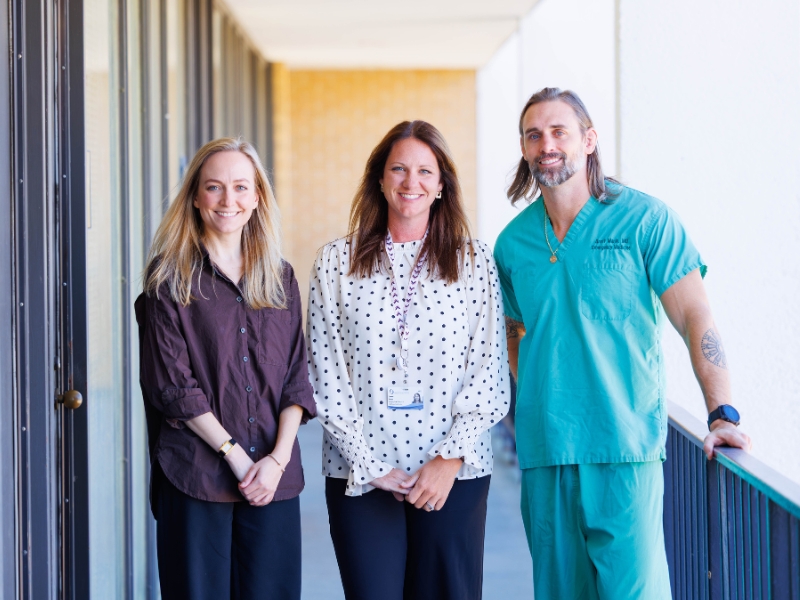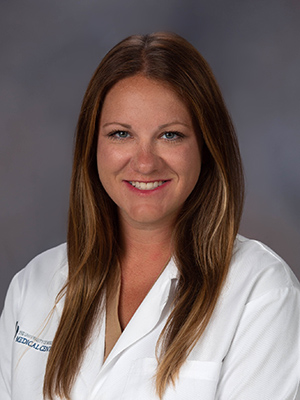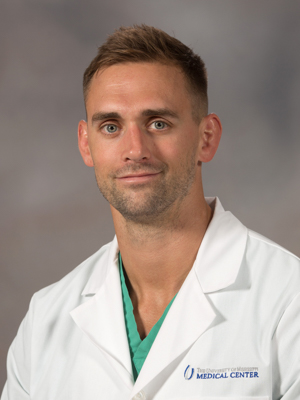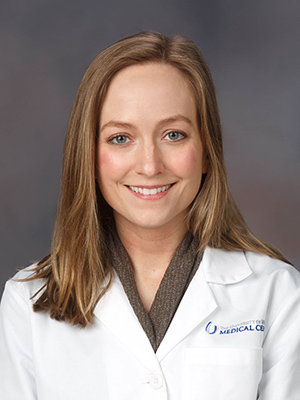That’s my job: Mississippi Poison Control Center

When a worried parent calls after their toddler swallows a handful of melatonin gummies, or an ER physician needs guidance managing a snakebite, the phone rings at the Mississippi Poison Control Center and a team of poison information specialists is ready to help.
Available 24 hours a day, 365 days a year, the Mississippi Poison Control Center at the University of Mississippi Medical Center serves as the state’s lifeline for poison exposures, offering free, expert assistance to both the public and health care providers.

“We get calls about everything from suicide attempts and drug overdoses to spider bites, snake bites and pesticide exposure,” said Jenna Davis, managing director of the center. “A lot of people think poisoning equals children, but it really crosses the entire age span—older adults accidentally double-dosing their medication, workers exposed to chemicals on the job or parents calling to make sure it’s safe to mix certain medicines.”
In 2024, the MPCC handled 17,342 cases, including 15,599 human exposures, 327 animal cases and 1,416 information calls. More than half of those were managed at home under the team’s guidance, preventing unnecessary emergency department visits.
The center is staffed primarily by registered nurses and pharmacists certified as Specialists in Poison Information by America’s Poison Centers. These clinicians field calls from across Mississippi, aided by a group of emergency medicine specialists including a physician, a nurse practitioner, a pharmacist and a medical toxicologist.
Because patients are remote and often panicked when they call, critical thinking and communication are essential on the job.
“You have to know what to ask,” Davis said. “Our specialists don’t have the luxury of seeing the patient in front of them, so every question matters—how much, how long ago, what symptoms they are experiencing. They rely on knowledge and instinct to assess the situation and make recommendations that can save a life.
Nancy O’Rourke, RN, joined the team in 2020 after working in various clinical settings at UMMC. She said her favorite part of the job is helping worried parents through tense moments.
“My favorite thing is when I can ease the mind of an anxious parent,” O’Rourke said. “Kids manage to get into all sorts of things, and parents appreciate having someone they can call who will tell them whether it’s going to be a problem or not.”
O’Rourke said the job’s variety keeps it interesting and meaningful. “We get questions about insect stings, toxic plants, chemicals and medications,” she said. “Anyone can call us when they aren’t sure what to do next. We’d much rather people call and ask than wait and worry.”
Behind the scenes, every call becomes part of a broader effort to improve poison prevention and patient care. The Mississippi Poison Control Center maintains a statewide database that tracks the nature, cause and outcome of every exposure.

“We monitor, educate and advise not just for patient care, but for public health,” said Dr. Michael Marlin, medical director of the center. “We provide the Mississippi State Department of Health with quarterly reports to assist state epidemiologists. Regionally, we have assisted the CDC in developing incident response protocols for mass casualty events, including radiation exposures.”
Near real-time data is shared by all 55 poison centers in the country through the National Poison Data System, which allows toxicologists and public health agencies to quickly spot trends or emerging threats.
“We work closely with the Department of Health, the CDC and others on surveillance for things like cannabis, kratom or carbon monoxide,” Davis said. “Recently, we were seeing a semi-synthetic version of kratom causing patients to need Narcan, so we helped issue a health alert with the Department of Health.”
The center’s data have also shed light on a rise in pediatric edible cannabis exposures, primarily related to delta-8 THC products. In 2024, children ages one to five accounted for the largest portion of poison cases, nearly six times that of any other age group.
The MPCC will soon be deploying a cannabis-based call center to assist with medical questions specifically regarding cannabis, Marlin said. It will also develop a registry to track adverse events to better describe the burden of cannabis legalization on the health care system.
Calls are routed through cell towers directly to the Mississippi Poison Control Center, where someone is always available—day or night, holiday or weekend. Some days bring over 100 calls; others, 40. The pace often mirrors the state emergency department’s seasonal and rising trends.
“We see lots of calls about pesticides and pool chemicals in the spring and summer,” Davis said. “It’s not always necessarily because someone has been exposed. They may just be inquiring about safe use and storage of chemicals.”
Davis and other directors help oversee daily operations, clinical protocols and toxicosurveillance trends. They also provide 24/7 on-call support for the poison specialists and assist with phone coverage when needed.

“Each day is different,” said Mallory Pullman, assistant managing director. “I might be monitoring productivity, contributing to strategic planning or analyzing data on exposures across the state. My background as a pharmacist helps me guide the team through complex medication-related cases.”
Pullman said the most rewarding part of her work is being part of a highly specialized, interdisciplinary team that is united by a common goal. “We’re all here to safeguard the health of Mississippians. Every call matters, and every person who picks up the phone makes a difference.
“People don’t always realize we’re here or that they can call us for free,” she said. “But if someone’s in doubt—whether it’s a child with a mouthful of something they shouldn’t have, a medication mix-up or a question about a chemical, they should call. That’s what we’re here for.”
- - -
If you suspect poisoning or have questions about a possible exposure, call the Mississippi Poison Control Center at 1-800-222-1222. For all general information, call 601-984-1675.


